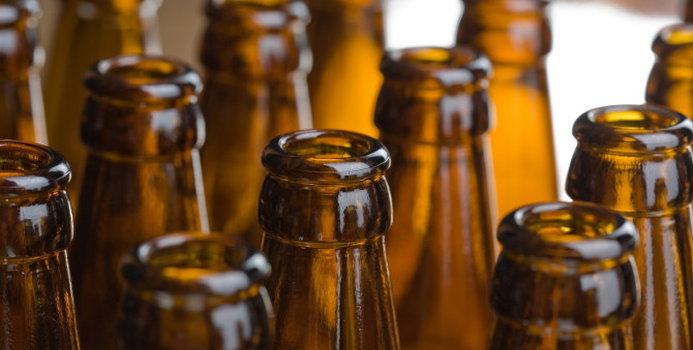Eating while drinking alcohol can become a real problem for people who are trying to lose or maintain a healthy weight. Well-known are the effects alcohol has on impairing decision-making skills, judgement and self-control. But there is more to it than just impaired judgement. The ability to regulate what and how much we eat already requires a lot of willpower for many and when you factor the effects of alcohol into the situation, the ability to make healthy choices becomes even tougher.
There are multiple ideas on why people eat more and typically choose unhealthier choices when drinking. One idea is that although your body is consuming calories from alcohol, without the addition of fats, proteins, fiber and nutrients, it takes longer to feel full when drinking. Alcohol is a fermentation product of carbohydrates, so it supplies calories but minimal to zero nutritional benefit. It provides 7 calories per gram vs. regular carbohydrates at 4 calories per gram. Alcohol isn't digested but goes through the lining of the small intestine and stomach into the blood stream, depressing cellular activity. If you eat food, you can slow the absorption of alcohol into the bloodstream, which is why eating before or while drinking is often recommended. When you eat or drink any calories, your body raises insulin levels to use the sugar in the blood. When the digestion/absorption of the food or alcohol is fast, as with simple carbohydrates or sugary drinks, the blood sugar levels can quickly drop triggering the brain to signal for more. People who are drinking may tend to choose lots of simple carbohydrates, like sweets or white-flour based foods to quickly address the body's signaled desire to raise blood glucose levels. Alcohol also requires vitamins, minerals and other nutrients to metabolize, and for heavy drinkers, alcohol may further interfere with nutrient absorption.
For some people, alcohol also enhances the taste of fats and salt resulting choosing unhealthier choices like fast food or chips. Increased consumption of unhealthy foods such as fast food, soda, simple carbohydrates and excess trans-fats can have serious health consequences.
So while an extra snack or a meal while drinking may have some benefit in slowing the absorption of alcohol and helping metabolize it, in the end it all adds up.
Here are some ideas on how to avoid unhealthy choices or limit eating while drinking.
1. Limit your drinking! Moderation of alcohol consumption is 2 drinks a day for men and 1 drink a day for women. The less you drink, the more control you will have over your decision-making skills. Additionally, drink lots of water in between your alcoholic drinks to maintain hydration. Often dehydration masks itself as signals for hunger.
2. Out of sight out of mind. Keep food and snacks out of reach and avoid keeping junk foods in the house.
3. Eat before you drink. By eating a healthy meal prior to drinking (with proteins, fats and fiber!) your brain may get the signals of satiety and fullness, reducing the craving for snacks.
4. Prepare snacks ahead of time. If you know you are guilty of mindless eating or love snacks while drinking, have fruit, cut vegetables, plain popcorn, yogurt and high-protein foods like boiled eggs accessible. Or plan a small meal like black beans, salsa and a single serving of whole-grain tortilla chips.
5. Friends for support. Make a plan with your friends to support each other while drinking to limit or stop unnecessary eating. Additionally, staying active with friends by playing games or doing other activities will help keep your mind off of eating.

Emily DeLacey MS, RD is a Registered Dietitian and currently working in Jamaica as a HIV/ AIDS Prevention Specialist. She attended Central Washington University for her Bachelor's Degree in Science and Dietetics and continued on after her internship to Kent State University for her Master's Degree in Science and Nutrition, with a focus on public health and advocacy. She served as a U.S. Peace Corps Volunteer in Malawi 2012-2014 working as a Community Health Advisor in a rural village, immersing in the joys of life without electricity or running water. She has been to 20+ countries and 47 of the 50 states in the US. Traveling, adventuring and experiencing new cultures has made her a passionate advocate for the equality of nutrition and wellness for all people.



